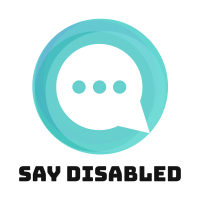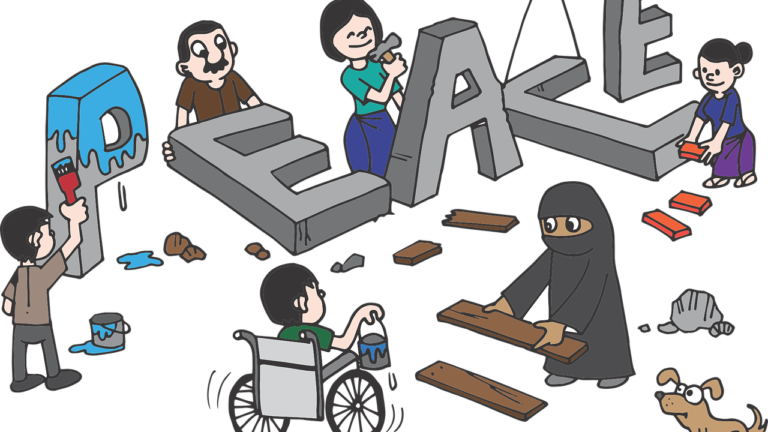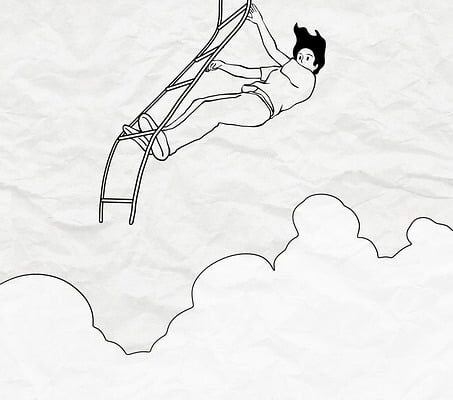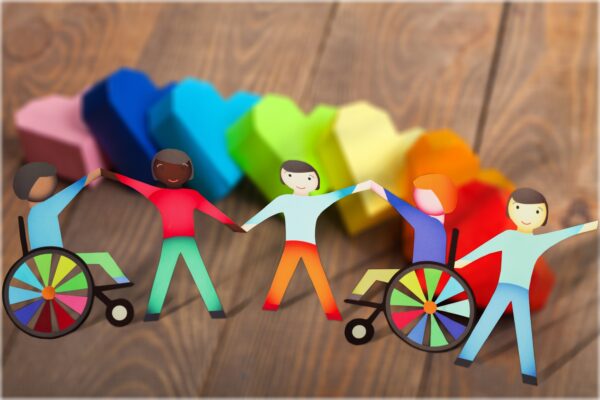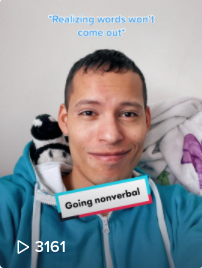I talked about some of the reasons that other words for disability are not preferred by the disability community in Stop Saying Special Needs and Stop Taking About the Mental Age of People With Disabilities. To sum it up here, none of the alternative terms for disability were actually coined by or endorsed by anyone with disabilities. And disabled people should have the right to self-determination just like any other group. Did you know that taken as a whole, people with disabilities actually make up the largest minority group in the USA and in the world? With that many disabled people, why exactly do we need nondisabled folks to make up terms for us?? Can you imagine, for example, if white people coined a new slang term for black people and, not only that, but we started insisting it was THE proper term and naming institutions black people had to visit using this newly made-up term? People would be up in arms, right? As they should be. But yet this is exactly what happened when nondisabled folks made up terms for disability and no one sees an issue?! I remember when my daughter was in Early Intervention and I received letters in the mail from the “Bureau of Special Children Services” how I would think “is our society really this oblivious?” It should go without saying that the terms for people with disability should be chosen by people with disabilities.
So where did these other terms come from and why are they so pervasive today? Differently-abled is a term for disabled people that was made up by the Democratic National Committee as they were writing a new law and could not bear to utter the word disabled. Special Needs was coined by parents of disabled children who weren’t quite ready to admit their child had a disability: “oh my kid isn’t disabled, he’s just special needs – a few extra therapy sessions and he will be caught up in no time.” Unfortunately as we know, that’s not really the case. You cannot just therapy a child out of a diagnosis – the therapy exists to help the child cope with their disability and better move through the world as a disabled person, not to wave a wand a magically make them more like the nondisabled kids. Ivar Lovaas, founder of the now known to be harmful Applied Behavioral Analysis (ABA) therapy for autistic kids (also the founder of “pray the gay away” anti-gay conversion therapy, another obviously outdated and harmful practice) said that his goal in treating autistic children was to “make them indistinguishable from their peers.” Of course we now know that ABA is harmful because if it was a success, the autistic person would be masking so hard and although it might look like they were acting neurotypical, this would be so harmful and painful to them to wear such a heavy mask all the time and would only benefit the neurotypical people around them and not the autistic person at all.
So we know why those other words for disability are not preferred. Now let’s answer the question: why disabled? What’s good about it? What makes it the best word?*
- The disability community prefers it. This should really be the only reason to matter because you wouldn’t ask a lawyer how to fix a broken pipe. You wouldn’t ask an opera singer for a good tiramisu recipe. When you need a pipe fixed, you ask a plumber. When you need a recipe, you find a cook. When you need to know about people with disabilities, ask people with disabilities. Don’t ask doctors, advocates, politicians or parents. Those people may seem like experts but they are all at least one level removed from actual people with disabilities. Would you ask a parent of a plumber how to fix a pipe? Would you a chef’s doctor how to make tiramisu? Sounds ridiculous but that’s what many are doing when it comes to disability.
- It’s not a euphemism. Disability is the actual correct dictionary term. Euphemisms are stand-in terms designed to soften the blow of a harsh word or improve the perception of a concept, but euphemisms for disability have been shown to be ineffective. They actually increase misperceptions and increase negative opinions about people with disabilities. When you say someone “is special needs” without naming what those needs are, people are automatically thinking of someone with an intellectual disability, autism, or a more severe presentation. When you say disability, they are thinking of the more broader spectrum of mild – severe and physical and mental disabilities. And euphemisms are what are used most often to tease and bully people with disabilities. When you think of a group of kids mocking another kid on the school playground, they aren’t saying “are you disabled?” – most of the time they’re using euphemisms. These words that were at one point perhaps benevolently designed have been taken and used as insults more widely and have taken on those negative connotations. This puts us on what has been coined as the euphemism treadmill where a term becomes pejorative and then a new term is invented ad nauseum. In order to get off this treadmill we have to stop creating euphemisms and simply use the real word – disabled.
- There is no better word. Every other word you could think of to use is more problematic.
- Disabled has multiple connotations that fit the different ways people with disabilties move through the world. At first glance, dis means not or can’t. You can think of all the other words in our language using this prefix – disfunctional, disingenuous etc. And yes, the word disabled is pointing out what people with disabilities cannot do. The fact of the matter is, there is something different about us that impacts a major life activity or the way we do things. A person who is in a wheelchair may be there because they cannot walk. A person who uses a feeding tube might use that because they cannot eat anything by mouth. A person who is deaf potentially cannot hear. Someone with bipolar disorder cannot regulate their emotions in the same way as a person without the diagnosis. An autistic person cannot make eye contact in the same way a neurotypical person might. In this context of the word, we claim that it’s okay that we can’t do everything that abled people do or that do things differently. Just because we can’t do it the way you do it doesn’t necessarily mean we can’t do it at all. In fact, you could look at it that we are “dissing” the way society traditionally does something and choosing our own way to do it. If I have back problems and society says I should sit 8 hours in a computer chair with a straight back, I’m dissing that and working from my recliner at home. If I’m autistic and society tells me that in order to relate with others I need to stare straight into their eyes for long periods I’m dissing that and teaching others around me that even if I’m not looking at them, I’m still paying attention. Don’t deny me opportunities to communicate just because I don’t do it the same way you do. If I have MS and society says I should stay home when I’m not strong enough to walk around in the community, I’m dissing that and becoming a part time wheelchair user so I can get out and about and still do the things I used to, just in a different way. I’m insisting on access and accessibility because I have the right to live and work and go to the beach and the library too, despite my “dis”ability.
- Society disables us. In the sense of being “not able” it is often the way society is set up and not something innate about us that is actually what becomes disabling. In that sense, the word is quite accurate. We are not able because society doesn’t make room for us. Imagine a world where all bathrooms had urinals only and there was no way to pee sitting down because men set up the bathrooms and tailored them to their needs and forgot that women exist. That’s exactly how it is for people with disabilities. If you want to attend a lecture but you happen to be deaf and the lecture is given in spoken English with no ASL interpreter, you’re out of luck. If you want to go to the lake at a public park or campground but the ground is soft and there’s no wheelchair path, again – sorry, society forgot about you. If you have executive functioning issues due to ADHD and you cannot remember deadlines but want to attend college, sorry – you won’t get a scholarship because even though your work deserves an A as there are no mistakes, you turned it in a day late and you get a 0. If you have a disability and want to become an entrepreneur but you need to spend all your disposable income on medical care, medications and equipment to help you with basic needs, sorry, you’ll never be able to save and start your business like a nondisabled person would. In all the ways that society doesn’t understand, accommodate, and set up spaces, institutions, policies etc. to be fair to people with disabilities, it is society itself that disables us. This is called the social model of disability.
- Disability has a multifaceted meaning. In addition to “lack of/not,” dis also means “apart from.” This definition of disability is perhaps the one that makes the most sense. Disabled people are apart from/separate from/a distinct community who are different compared to abled people. For example, here are some words we use where the prefix dis means separate: My disability distinguishes me from others, but in fact, I can often keep my disability discreet. Many people have invisible disabilities, whereas others use mobility aids or other supports that help them go the distance and that’s perfectly okay too. You’ll soon discover how disability isn’t a disease and (although we may have disorders or seem dissimilar), it shouldn’t disqualify people from participating fully in society. People with disabilities shouldn’t disappear or mask to make nondisabled people feel more comfortable – don’t let it disquiet you. We are just like everyone else! In this passage, distinguish means separating something from something else, distance means the space from one place to another, disquiet means uneasy/worried/stressed, i.e. far away from being calm and happy, dissimilar means apart from, unlike. All of these examples express how disabled folks are different from abled people. Although we are more alike than different, the fact that we do one or more things differently is a better distinguisher than the more literal meaning of “not able.”
So for all these reasons – because disability is the correct dictionary term and not a euphemism, because every other word you could use has been invented by nondisabled folks and taken on negative connotations, because the word disability itself has multiple shades of meaning to fit anyone’s interpretation of disability, and because disabled people prefer it: use disability. Say disabled.
- * I do want to add the caveat that just like anyone else, people with disabilities are unique individuals with thoughts, feelings, and opinions of their own. This blog represents my own opinion and it is also the general consensus of the disability community that the word disabled is the preferred term. So when referring to the disability community as a whole or an individual when you don’t know their preferred language, you should use disability/disabled. However if an individual has expressed a preference – even if that preference is borne out of internalized ableism – you should always use that individual’s preferred language. Just like there is misogyny among women, racism that happens within the black community, transphobia from one trans person to another at times etc. so too does prejudice exist within disabled folks ourselves. Disability discrimination has been said by some to be the last socially acceptable form of discrimination and is SO rampant in our society that it’s hard not to internalize some of it. So even though it seems like I may be going against some of my deeply held principals here (and I am and it pains me), if a disabled person asks you to call them special needs or crip or gimp or differently-abled – go ahead. It is hard enough to be a disabled person moving through the world and we are already so disenfranchised and disrespected without people ignoring our preferred identifiers that I’m urging you to say it anyway. From there we can work on educating other disabled folks about how some of these words for disability contribute to misconceptions and harm against the disability community in general (and the community at large since what is good for disabled people is good for everyone) and having conversations with them about better terms to request. Or maybe they can educate us – I know some people choose to reclaim “crip/gimp” in the same way LGBT people reclaimed queer or black people reclaimed the N word. In the end, please respect each individual’s opinion and how they personally identify even if you disagree, just like you would respect a trans person’s pronouns.
